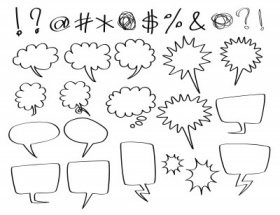Speech therapy can be used as a way to overcome speech impediments, to help brain injury patients to recover their lost use of language, and to help children who are still developing their spoken language. The ability to speak confidently and clearly is one of the most important and useful tools we can use in daily life, and so to be able to provide a child or an adult with these skills is an incredible gift to be able to impart.
However just learning the theory behind speech therapy is not always enough, at the same time you need to know how to engage the patient, to entertain them and to get them invested in developing their language – and this can be especially tricky if you are working with a young child or a brain injury patient with perhaps not the same attention span as you or I. Here we will look at some activities and games you can use then to involve a patient in the process of developing their language, and practicing their articulation, phonetics, alphabet, memory and vocabulary.
Reading Aloud
 Simply reading aloud is a great way to improve a speaker’s vocabulary, their confidence, their articulation and more. It’s entertaining because they will be getting a story out of it, and hopefully they’ll want to know what happens next. At the same time there are so many stories and books available that you can make sure to choose one that is the right difficulty level, and one that will appeal to the individual. You can also help them through sections that they are struggling with.
Simply reading aloud is a great way to improve a speaker’s vocabulary, their confidence, their articulation and more. It’s entertaining because they will be getting a story out of it, and hopefully they’ll want to know what happens next. At the same time there are so many stories and books available that you can make sure to choose one that is the right difficulty level, and one that will appeal to the individual. You can also help them through sections that they are struggling with.
Learning a Poem
Getting a patient to read aloud means that they are trying to pronounce various sections of text and thereby improving their vocabulary and their pronunciation. However you are here at a risk of ‘glossing over’ sections in order to progress the narrative. When you learn a poem, a song, or a rap, however you have instead given yourself and the individual a challenge which is to memorize and learn a specific block of text and to get that part perfect. This way you can help them to learn particular skills and hopefully they’ll at the end be able to proudly perform their segment to you and to friends which can provide them with a great sense of achievement. Try to choose your poem/rap in order to suit your patient again and make sure it’s something they’ll enjoy learning. You can even try writing one together to learn which is a great way to strengthen vocabulary.
Tongue Twisters
Tongue twisters are a great way to get your patient to focus on improving their articulation and practicing certain phonetics. Choose a tongue twister that focuses on particular problem areas, and again aim to get this perfect so that they can show off their new skills by reciting the segment.
‘I went to… ‘
This one is a fun and familiar game where you add an item to a list of words and have to recite them. For instance one person would say ‘I went to the shops and I bought a lemon’, the next person would then add an item saying ‘I went to the shops and I bought a lemon and a pear’, and the next person might say ‘I went to the shops and I bought a lemon, a pear and some socks’. The loser of course is the person who fails to recite all the items, and it’s up to you and the other player what items to add – making it fun and competitive. Of course you can subtly focus on particular sounds and articulation by selecting the words you choose.
‘I spy… ‘
I spy is another classic game that everyone knows and that can be great for developing a range of skills including deductive reasoning, expressive language and receptive language. It’s also a great way to get a conversation going so that the language is ‘back and forth’ as it is in a real conversation – akin to a tennis match. Again you can also pick things and letters that will target difficulty areas in your patient.
Band Names
Another fun one is to come up with names of a band, but going through the alphabet. So for instance you might say ‘ABBA’ and they would then have to say ‘Beatles’. Of course there is a time limit on the answers and taking too long means you lose – which is great for getting them to access memory and language areas of their brain under pressure.



